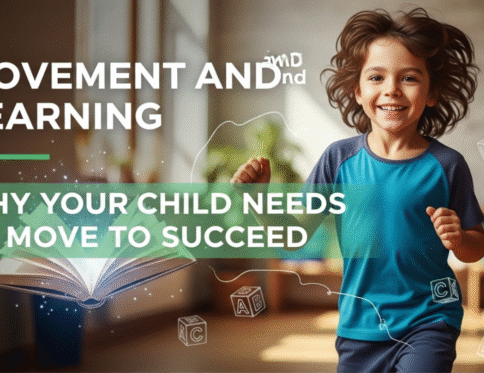When we hear the term “self-care,” our minds often jump to adult concepts like meditation or spa days. But the foundation of true, lifelong well-being begins much earlier. Teaching self-care skills in early childhood is not about luxury; it’s one of the most critical investments we can make in our children’s future. It’s about equipping them with the tools to become confident, resilient, and independent individuals. From my experience, I’ve seen that when a child masters a simple task, like zipping their own coat, their sense of pride is immense. This guide explores the profound importance of self-care and provides a roadmap for nurturing these essential life skills for kids.
This is not just another list of chores. This is a deep dive into how these simple, practical life skills shape a child’s brain and emotional well-being, creating a framework for success that extends far beyond the home.
More Than Just Tasks: What Are Self-Care Skills?
First, let’s redefine the term in the context of child development. Self-care for a child involves any task they learn to perform for themselves to manage their own well-being.
- Personal Skills: This is the most obvious category. It includes hygiene (brushing teeth, washing hands), dressing themselves, and basic feeding.
- Emotional Skills: This is a crucial, often overlooked, aspect. It involves learning to recognize and name their feelings, asking for a hug when sad, or finding a quiet corner to calm down. This is the beginning of emotional regulation for kids.
- Practical Skills: This includes tidying up their toys, helping to set the table, or putting their shoes away. These tasks foster a sense of responsibility and competence.
The Core Benefits: Why These Skills Are Non-Negotiable
Instilling self-care skills in early childhood pays dividends in every area of a child’s development. This is about more than just making your mornings run smoother; it’s about building a whole person.
Fostering True Independence and Confidence
Every time a child successfully completes a task on their own, they receive a powerful message: “I am capable.” This feeling of competence is the bedrock of self-esteem. Building independence in children is not about pushing them away, but about empowering them to navigate their world with confidence. A child who can pour their own drink or choose their own weather-appropriate outfit feels a sense of control and agency over their life, which is vital for healthy development.
The Building Blocks for Emotional Regulation
There’s a strong link between practical self-care and emotional management. When a child is frustrated trying to put on their shoes, and they work through that frustration to succeed, they are exercising their emotional regulation muscles. They learn patience and problem-solving. Furthermore, knowing how to care for their basic needs (like getting a drink when thirsty) reduces instances of frustration-fueled meltdowns.
Developing Fine Motor Skills and Coordination
Tasks like buttoning a shirt, using a fork, or brushing teeth are incredible workouts for the small muscles in a child’s hands. Developing these fine motor skills is essential for later academic tasks, most notably for learning how to write. These practical life skills are a natural and purposeful way to enhance physical coordination.
Promoting Responsibility and Executive Function
When a child is responsible for putting their toys away, they are engaging in complex brain work. They must plan, focus, and remember instructions. According to Harvard’s Center on the Developing Child, these abilities are part of our executive functions, which are critical for learning and problem-solving throughout life. Teaching self-care skills in early childhood directly contributes to building a stronger foundation for these crucial cognitive abilities.
How to Nurture Self-Care Skills: A Practical, Patient Approach
Nurturing these skills is a marathon, not a sprint. The “how” is just as important as the “what.”
- Prepare the Environment: Set your child up for success. Have a low stool in the bathroom, accessible drawers for their clothes, and child-sized utensils.
- Model and Demonstrate: Children learn by watching. Show them how to do a task with slow, deliberate movements.
- Break It Down: A task like getting dressed can have many steps. Break it down into smaller, manageable chunks. Master putting on pants first, then move on to socks.
- Celebrate Effort, Not Perfection: The goal is participation and effort. If the shirt is on backward, celebrate the fact that they did it themselves! Correcting every mistake can squash their motivation.
By focusing on these foundational skills, you are giving your child a gift that will last a lifetime. You are teaching them that they are worthy of care and that they are capable of providing that care for themselves.
Disclaimer: This blog post is for informational purposes only and is based on established child development principles and shared parenting experiences. It does not constitute professional medical or psychological advice. Please consult with a pediatrician or child development expert for any specific concerns regarding your child.






